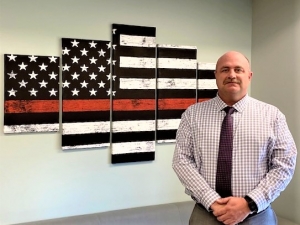Making Practical Application of What Is Learned
David Hurst | November 12, 2020
David Hurst | November 12, 2020
 Proverbs 17:28 says, “Even fools are thought wise if they keep silent, and discerning if they hold their tongues.” Following that as a guideline, I will try and keep this short.
Proverbs 17:28 says, “Even fools are thought wise if they keep silent, and discerning if they hold their tongues.” Following that as a guideline, I will try and keep this short.
Wisdom is the trait of having experience, knowledge, and good judgment. What we learn intentionally or through our experiences, gives us the knowledge of what we need to know. However, the knowledge we gain is useless unless we put it into practice. Wisdom is applying our knowledge and experiences for practical use. Wisdom is not perfection, and being wise is not without making mistakes. Being wise is correcting that mistake and successfully handling that situation in the future.
Additionally, wisdom should be shared. With all the options in the world today, share what you have learned along with your experiences to help others in their decision-making. Share character stories of doing the right thing, and discuss scenarios of making good character-based decisions at home and at work.
Finally, you should also remember to seek wise counsel and ask questions. I have made some of my best decisions by seeking input from others. I do have to admit that I have made some bad decisions on advice from others as well. Seeking wise counsel is the key.
A wise person seeks understanding, asks for advice and applies what they have learned.
And remember James 1:5, “If any of you lacks wisdom, you should ask God, who gives generously to all without finding fault.”

 Applying Wisdom
Applying Wisdom